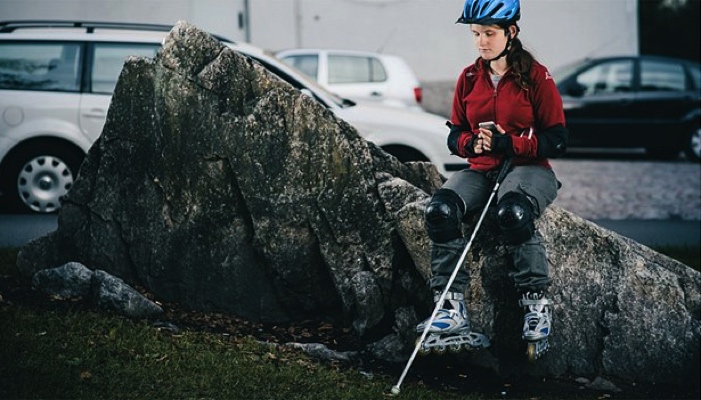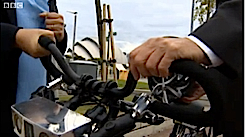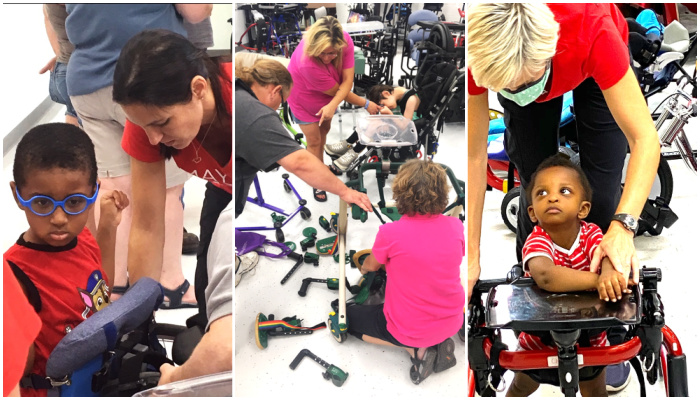Getting Around Using Assistive Technology when You’re Blind

Getting around keeps getting easier for people who are blind thanks to new assisistive technology.
BlindSquare is an iPhone (or iPad) app that uses your phone’s GPS to figure out where you are then delivers information about your environment using data from FourSquare.
Its speech software tells you what’s around you – street crossings, a popular cafe, the library or post office, etc. Not only can this help blind travelers learn more about the shops and surroundings as they pass them on the street, it can also be a way to orient yourself when you get turned around. Where am I? Oh, in front of the library. Got it!
To learn more about BlindSquare read this article from the BBC or check them out on iTunes.
Another cool piece of technology is the ultrasonic sensor that’s being used in multiple ways to give blind travelers information about their surroundings. One version of this is a new “UltraBike” for blind cyclists that uses ultrasound to sense obstacles and send tactile cues back to the cyclist through vibrations in the handle bars: If you feel a vibration on the left that means there’s an obstacle on the left; a vibration on the right means there’s an obstacle on the right, etc.
 The creators of this bike say it’s not intended for blind cyclists to use while biking through busy streets, but does work well on closed exercise tracks. One blind rider points out that he had missed the feel of riding a bike since losing his vision and that stationary bikes may be good for exercise but real bicycles are a completely different experience.
The creators of this bike say it’s not intended for blind cyclists to use while biking through busy streets, but does work well on closed exercise tracks. One blind rider points out that he had missed the feel of riding a bike since losing his vision and that stationary bikes may be good for exercise but real bicycles are a completely different experience.
To learn more about the UltraBike and watch a demonstration video click here.
Related Posts

Eye Conditions and Syndromes, Visual Impairment
Neuralink Announces Plans to Restore Sight to the Blind with Brain Chip
Elon Musk’s company Neuralink has announced plans to begin human trials of its new “Blindsight” brain chip by the end of 2025.

Visual Impairment
The Gift of Understanding: How a Young Child Helps His Blind Father Navigate Life
When a parent is blind, it’s natural for people to wonder how their sighted child will adapt. Will they struggle to understand their parent’s needs? Will they feel burdened by...

Assistive Technology, Support
May We Help: Engineering Independence for People with Disabilities
May We Help is dedicated to designing and building custom solutions that help individuals of all ages achieve mobility, access, and independence, all at no cost.